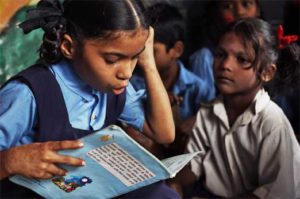
- There is a history of reading problems on either side of the biological family.
- Has poor self-esteem and may be exhibiting behavioral problems.
- Bad ear infections during the first year of life.
- Delayed speech.
- Difficulty planning and organizing.
- Presents a challenge sustaining attention; appears “hyper” or “daydreamer.”
- Had unusually early or late developmental stages (talking, crawling, walking, tying shoes).
- Slow development of fine motor skills (i.e. holding a pencil properly, using buttons or zippers and /or
brushing his or her teeth?) - Struggles with recognizing and repeating rhyming patterns.
- Complains of dizziness, headaches or stomach aches while reading.
- You feel that your child can learn better if the reading assignment is read aloud to him or her.
- Your child tries to “sound out” basic words but struggles.
- Reading and / or writing shows repetitions, additions, transpositions, omissions, substitutions, and
reversals in letters, numbers and/or words. - Spells words the way they sound rather than the way they are spelled.
- Difficulty putting thoughts into words; speaks in halting phrases; leaves sentences incomplete; stutters
under stress; mispronounces long words, or transposes phrases, words, and syllables when speaking. - Poor and / or inconsistent spelling.
- Difficulty retaining meaning when reading or answering written questions.
- Basic math skills are easy but word problems are challenging.
- Average or above average intelligence.
- You have been told that your child is not “behind enough” or “bad enough” to be helped in the school setting.
